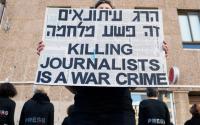By Jackson DiehlMarch 10, 2003;
Osman Faruk Logoglu, Turkey's energetic and outspoken ambassador in Washington, had a list of reasons why his country's parliament, by a margin of only three votes, failed to allow U.S. troops to transit Turkey for a war with Iraq. But one stood out: the Bush administration's insistence on a quick answer. Had his new government had more time to make the case for cooperation, he hinted, the vote might have tipped the other way. "But there was," he said, "relentless pressure for an immediate decision."
Maybe the pressure, and the air of imperious impatience that it conveyed to Ankara, was necessary to meet the Bush administration's tight calendar for action on Iraq. Maybe Turkey will still come around. But as the United States now heads toward a war that appears likely to leave behind severe diplomatic as well as military wreckage, the ambassador's comment adds to a nascent discussion about why the United States has fared so poorly in the global debate over Iraq -- and what that means about the new international era that will likely begin with the arrival of American troops in Baghdad.
Some would argue that what increasingly looks like a severe rift in the Western democracies was entirely man-made -- and that clumsy and arrogant acts by the Bush administration started the trouble. The British publisher George Weidenfeld contends that had it not been for last summer's exceptional floods in eastern Germany (which helped reelect Chancellor Gerhard Schroeder) and the first-round protest votes by alienated Frenchmen (which gave Jacques Chirac a second term as president), there would be no transatlantic crisis.
These explanations seem too simple -- deeper historical forces, and not just personalities, are prying old allies apart. For the past decade, France and Russia have tried to make the Middle East a theater for containing the growing global power of the United States. Both strongly opposed the Clinton administration's attempts to respond forcefully to Saddam Hussein; both undermined U.S. containment of Iran. In doing so, they satisfied themselves that the world remained "multipolar," to use Chirac's term -- at the price of letting a couple of rogue states off the hook.
In reality, this strategy could work only as long as the United States allowed it to -- which was until Sept. 11, 2001. Since then there has been a bipartisan consensus in Washington that the threat of tyrants with weapons of mass destruction must be faced, and a galvanization of political will to use military force. That, of course, has only strengthened the conviction in Paris and Moscow that the post-Cold War mission of their countries lies in checking the exercise of U.S. power. No matter the personalities or the diplomatic skills on each side, it's hard to believe that Washington's insistence on Iraq's disarmament would not have led to a showdown on the U.N. Security Council -- and some considerable unease in the world about what amounts to a new era of American assertiveness.
But that doesn't explain Turkey. Here is a country that depends heavily on the United States for its security, for its economic well-being, for its very identity as a Muslim country accepted as part of the West. U.S. intervention recently rescued the Turkish financial system from bankruptcy. Then there are Mexico and Chile, current members of the Security Council and the two most prosperous and stable democracies in Latin America. These may be the closest Latin friends of the United States -- yet neither so far has been willing to commit to the votes the Bush administration badly needs for a new Security Council resolution.
That is the real measure of the administration's diplomatic failure: not that countries that have always opposed American primacy continue to do so but that nations that depend on the United States for security and global leadership have been driven to the opposition, or the sidelines. Two years of perceived slights, high-handed treatment or simple neglect by Washington didn't create this crisis -- but they have compounded its cost.
If Bush had not abruptly deep-sixed bilateral talks on immigration, Mexico would now probably be more ready to side with Washington. Chile, too -- if the administration had moved more quickly to finalize its free trade agreement. And had Bush not been so visibly impatient with Turkey's maturing democracy, there likely would have been three more pro-U.S. votes in the parliament. There would still be a tough international debate over Iraq, but it would be one in which U.S. leadership would be more prone to prevail.
As the Bush team sees it, the coming war will inaugurate an era in which the United States more freely uses its power to stop the global proliferation of nuclear weapons and terrorism before it becomes uncontrollable. That will require an adjustment by France, Russia and other former allies and adversaries that grew comfortable with America's relative passivity during the 1990s. But it should also require the United States to learn the difference between global leadership and bullying. As Turkey might attest, we're not there yet.
http://www.washingtonpost.com/ac2/wp-dyn/A2863-2003Mar9?language=printer






